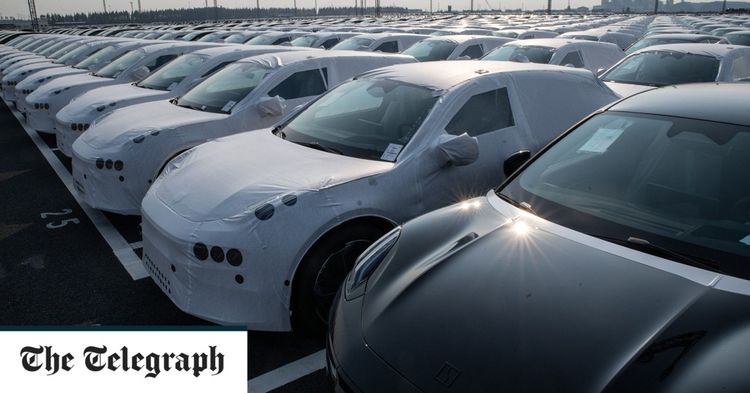Brakes of electric vehicles in Britain could be controlled remotely by China

According to a Chinese surveillance specialist's report, organizations affiliated with the Chinese government may have the ability to manipulate the brakes of British electric vehicles from a distance.
The analysis carried out by Christopher Balding, who is additionally the creator of New Kite Data Labs, an independent research organization, raised concerns about the vulnerability of certain components in electric cars to remote interference. In particular, the braking and steering systems could be potentially manipulated.
According to his statement to The Daily Telegraph, he mentioned that this concept may become applicable in the United Kingdom down the line as the quantities of electric automobiles rise.
In the article called "Chinese Vehicle Monitoring Abilities," Mr. Balding states: "The second possible danger goes beyond basic observation and scrutiny, like obtaining information about speed, location, and direction. It involves the capacity to manipulate particular systems in a car."
For a while now, cybersecurity experts have been acknowledging the dangers of hacking into important parts of electric vehicles. However, this situation is somewhat distinct. In this case, if a malware infects a particular component, it doesn't just grant access to the system and its operational information, but also grants full control over that specific system.
"This implies having authority over the brake system or the built-in microphone."
According to Mr. Balding, who is also a senior member at The Henry Jackson Society, an international organization focused on human rights, groups associated with the government would have the capability to eavesdrop on a vehicle or manipulate its braking system. This ability stems from their possession of the original car programming code provided by the manufacturer, as well as access through previously known entry points.
He was interviewed by The Telegraph after writing the report for New Kite Data Labs, a company that gathers surveillance information from China and explores Chinese data technology and the potential security threats associated with it.
The document highlights proof it has discovered that suggests Chinese companies and officials possess extensive entry to vehicle information in electric cars with connectivity, including location details.
The blog section brings attention to the worries regarding the security dangers linked to electric vehicle (EV) batteries. It emphasizes that these batteries consist of substantial quantities of programming, granting them considerable monitoring abilities and the possibility of remote control over the systems.
It appears that the UK is becoming more worried about China's future control over the electric vehicle industry and its possible exploitation of technology to gather data.
Part of this arises from the fact that the UK has set a deadline of 2030 for banning new petrol and diesel vehicles, leading to predictions that China will dominate the UK market due to its expertise in manufacturing inexpensive electric automobiles.
In the previous month, The Telegraph published an article stating that a group of MPs from different political parties cautioned the Government about the possibility of Britain relinquishing control of its car market's "essential infrastructure" to Beijing. This transfer of control was seen as bringing along various security issues.
According to Mr. Balding, it is possible to take this idea even further in China, as individuals there might be capable of digitally manipulating vehicle systems to alter their functioning.
The individual stated that this task could be accomplished using the car's battery, which he referred to as the "core and intellect" of the vehicle since it is connected to all the other systems within the car.
He mentioned: "The battery is responsible for operating each separate system, providing power to the entertainment system, as well as supplying power to the braking system."
"The problem lies in the act of shifting horizontally [...] And shifting horizontally implies that if I gain access to the entertainment system, I can progress horizontally to reach the battery, and subsequently infiltrate the braking system or the microphone. This would grant me the ability to seize control over various systems."
He emphasized that he had not witnessed any proof of a Chinese organization gaining control of a vehicle, whether it is in China or overseas, or intercepting any conversations among drivers. Nonetheless, he mentioned reaching out to several individuals involved in the electric vehicle industry who believed that these cyber intrusions were feasible.
Although he acknowledged that taking control of a car could be an extreme instance, he affirmed that his research group possessed information from China that unmistakably indicated the government's potential access to car data. According to him, this data would enable the identification of the number of occupants in a car and could even reveal whether they are utilizing seatbelts.
He mentioned: "Instead of a situation where many Brits die due to malfunctioning brakes, it is more probable that Chinese entities gather personal information on individuals, such as audio recordings, which could potentially be utilized to their disadvantage in the future."
He mentioned that although he couldn't assert with certainty at the moment that this was occurring, the composition of electric cars indicated they undoubtedly possessed the capacity.









































